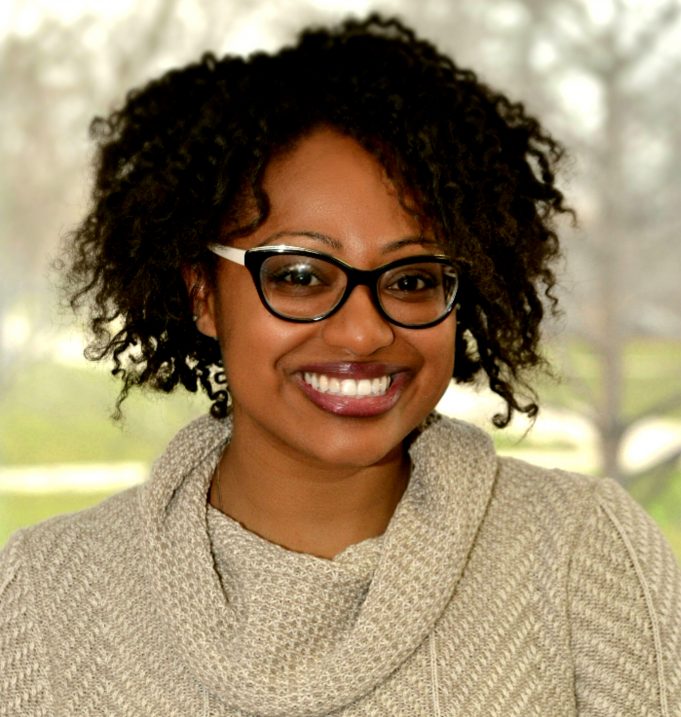The fan with the Obama mask and noose at a University of Wisconsin-Madison football game a couple months ago caused quite a stir on campus and beyond. Many students of color believed that it was not an isolated incident but part of a string of incidents that have made the University of Wisconsin-Madison campus an inhospitable place for non-white students.
After some initial momentum, it seems like a lot of the energy and publicity around changing the campus climate for students of color has subsided. But a group of UW-Madison African-American alumni is not going to let that happen.
UW-Madison alumna Valyncia Raphael is part of a collective of black UW alumni that drafted a letter to UW-Madison administration expressing their disapproval and their concern for the continuous incidents at UW that create a hostile environment for people of color.
“More than 160 alumni signed on and as we were drafting it, almost every single alumnus was able to talk about and elaborate on an experience they had while they were at UW,” Raphael tells Madison365.
During this past UW Homecoming, about 10 of those alumni had a heart-to-heart conversation with officials from the UW administration about all of those stories that were collected. “We talked through ideas of what was needed to change,” Raphael says. “So, instead of having this cycle of a very embarrassing and traumatic incident and then an inadequate response and then waiting to lie low until the next one erupts, we alumni talked about what we need to do to break the cycle.”
Immediately following that meeting, they hosted a forum with about 30 people and talked through what they learned at the meeting in terms of what the university has already been doing to address the issue in a more sustainable way. “We gathered more information from folks in the community and compiled all of the information from that forum,” Raphael says.

All of these steps have led to the drafting of a 5-page open letter of recommendations that Raphael hopes will create an additional layer of accountability to the public. “We’re in the final steps of finalizing the letter which we plan to release around MLK Day (Jan. 16),” Raphael says. “All told, it’s about five pages. The letter will have the recommendations and then we talk about each one and we elaborate on them.”
A former University of Wisconsin athlete, Raphael found a job on the west coast this past July. She is currently the director of Diversity, Compliance, and Title IX Coordinator for Cerritos College in Norwalk, California. But almost 2,000 miles away, she still feels compelled to keep ties with UW-Madison and to work to hopefully make things better for students of color now and for years to come.
“I have a really complex and bittersweet relationship with the UW because I have had a really positive experience overall. It’s just really hard,” she says. “It was a really difficult experience and I feel that a lot of my resilience comes from really painful letdowns and prejudice that I still get very emotional about. It’s still very raw. And anytime it happens to somebody else, I get angry all over again because it hasn’t ended yet.”
Apologies after that fact are important, but they ring hollow if significant changes aren’t made, if incidents keep happening, and campus climate never changes. Does Raphael feel like the UW administration is taking African-American alumni seriously or just paying them lip service?
“I think they take it seriously but I think that there is a gap in personal knowledge,” Raphael says. “A lot of the folks that are the key decision makers [at UW] feel like they can ascribe to an oppressed category here and there but I don’t think they can fully grasp what students of color go through without living it. I think there is an empathy gap where maybe they can know, but not truly grasp, what it’s like to walk around in brown skin on campus.”
Without attacking the systemic problems at play at UW-Madison, Raphael says, there is a cycle of treating the symptoms and never really curing the actual disease of systemic oppression.
Which, many say, is also a Madison problem. “Yeah. They play off each other. Madison reflects the university and the university reflects Madison. I don’t think that anything will be solved if the city and the community don’t work together,” Raphael says. “That’s why we’ve been so inclusive about making sure we have voices of Madison’s community leaders at the table. We are very intentional that they are represented at the table.”
For Raphael and others, these incidents just can’t happen anymore. They are looking for the Madison community to help support what they are fighting for, too, and hope that their upcoming open letter of recommendations will make a difference.
“I’m in California. I’m embarking on a new career. I think it’s easy for people like me to get distracted and say, ‘That’s something that’s going on in Madison and I’m removed from it.’ It’s easy to detach myself,” she says. “But as a UW alumni and somebody who is invested in the university, we can’t ignore it if we want to change it. We have to keep on working until there is a change. We need to continue to call to action and continue to expose what is going on.”




























